Black Owned Brand Products Sold in Beauty Supply
2020 was a year when awareness about the human rights of black people rose. Since the death of George Floyd in May, awareness about black rights has rocketed, and interest in black-owned companies has also increased. In addition, through the “body positive” campaign, which is part of the recent value consumption trend of millennials and generation Z, he curly hair of blacks is also changing to positive perception. Most of the black-owned brands in Beauty Supply are natural hair care products. Let’s find out which of the products in the store are black-owned brands and find out the origins and characteristics of the brand.
Active marketing of black-owned brands
Many companies are responding to the demand for black-owned business branded products by promoting black-owned businesses on their homepages and apps. Big beauty chains such as ULTA and Sephora created separate shopping sections for black-owned corporate brands. Etsy, an e-commerce company with the nickname ‘Second Amazon’, also started promoting black-owned businesses. There are also petitions going on that major retail stores must have at least 15% of black-owned brand products.
According to a survey conducted by Groupon and the National Black Chamber of Commerce, 75% of black businessmen said they were doing better after the protests triggered by George Floyd’s death began. Also, Groupon said internet searches for black-owned businesses increased by more than 300%.
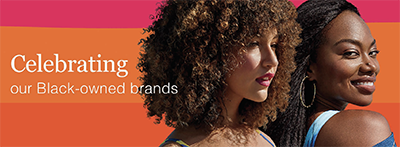
Black-owned brand page of large beauty chain store, ULTA
The beginning of black-owned brands
Looking back on the history of black hair products, we cannot discuss them without Madam C.J. Walker. Recorded as the first female millionaire in the United States, she helped advance the African American industry with hair and scalp care products in the early 1900s, creating economic opportunities for black women. “Self-Made,” a Netflix 4-part series released in March last year, is a drama about her life. Her inspiration came from her painful history and a unique career- her hair loss due to stressful work was condemned by her husband, and she had worked as a hair removal agent. With these experiences, she developed her first product, Wonderful Hair Grower in 1906.
Her initial product quality as well as her entrepreneurial mind was called a game changer in the black hair care industry and continues to affect the industry even today. Unlike the white companies that marketed their products by belittling the blacks at the time, she emphasized the health concerns of black women and differentiated the brand by putting her own face into the package. She also used a pyramid strategy of selling her products directly to black women to gain loyal customers.
Sundial Brands, which now owns Shea Moisture, a popular beauty supplier, acquired Madam CJ Walker Enterprises in 2013, and in the sense of continuing her legacy, Sephora also sold the Madam C.J. Walker Beauty Culture (MCJW for short) exclusively.
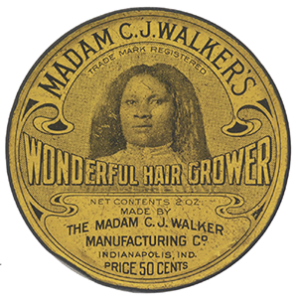
Madam C.J. Walker’s first product, the Wonderful Hair Grower
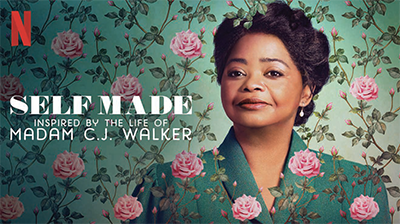
Netflix drama SELF MADE, depicting Madam C.J. Walker’s life
There’s a mark that stands for black-owned brands?
There is an easy way to find black-owned brands. If it has the symbol “ABHAI THE PROUD LADY,” then it is owned by blacks. AHBAI (American Health & Beauty Aids Institute) is a trade association representing the black community, founded in 1981. The symbol can be found in over 3,500 products in the US and abroad.
Representative brands sold in Beauty Supply stores are Bronner Bros, Arganics, Clear Essence Cosmetics, and Luster Products. When you purchase a beauty product with “The Proud Lady” brand on the back of the product, a certain percentage of the profits are returned to the community. The AHBAI Group uses the money in the area they serve in by supporting jobs, scholarships, and special community programs.
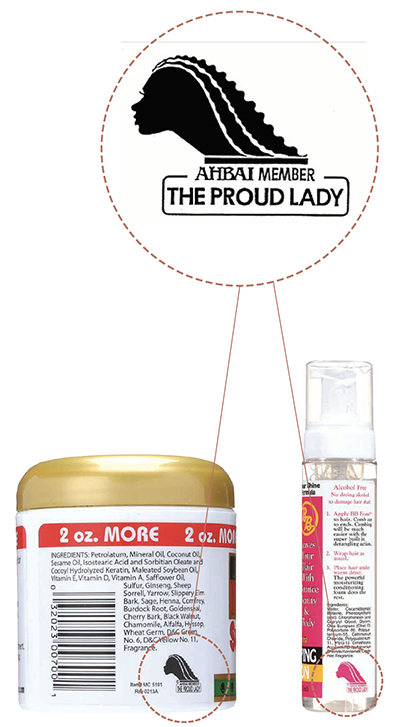
‘THE PROUD LADY’ symbol on the back of African Royale and Bronner Bros products
Representative black owned brand found in Beauty Supply
Design Essentials Natural
Founded in 1990 by Cornell McBride, Design Essentials has created a premium hair care system for use in beauty salons and at home. Recently, the Hair ID system was introduced on the official website, and customized products are recommended if you choose your own hair type from hair type 1 to 4C.
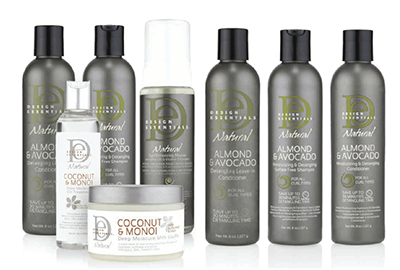
Luster’s pink
Luster Pink, with a 60-year tradition, started in Chicago as a business of the Luster family. If you’re black, it’s a product you’ve seen at least once on your mother’s dressing table. It’s a hair lotion made with shea butter and coconut oil, and it’s called ‘pink lotion’ rather than the brand name. It is an excellent product for moisturizing and protecting black hair.
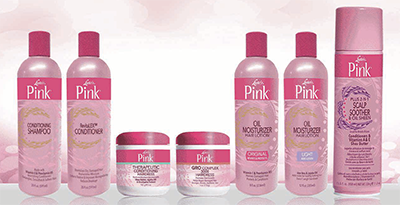
Mielle Organics
Founder Monique Rodriguez launched the product in 2014, and it all started when she posted a homemade hair care recipe on social media to repair damaged hair. She received positive responses from followers, so she decided to make it a brand. It is renowned for its scalp health and hair damage repair product line, and in 2019 it was voted the fastest-growing natural hair care company by Forbes.
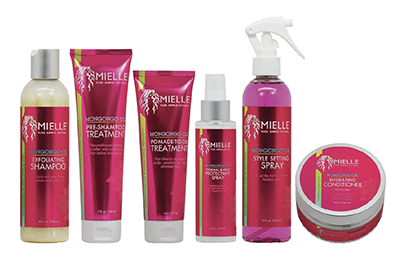
jane carter solution
Founder Jane Carter, who has been beautician for more than 20 years, decided to make her own brand after suffering from an allergic reaction to hair products containing chemicals. She created a vegan hair care line based on natural plants. It is a product that is expected to become more popular due to the recent vegan shift.
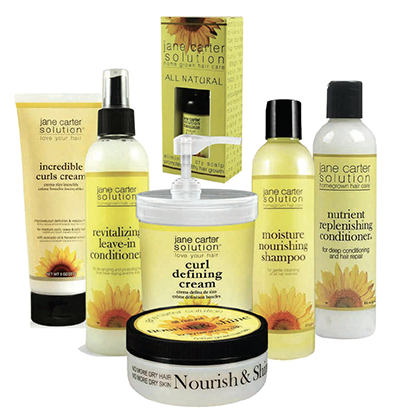
Eden bodyworks
Founder Jasmine Lawrence had a chemical burn to his scalp when he was 11 years old and released Eden bodyworks in 2004 after a long study of ingredients that repair hair damage so that other people don’t suffer the same pain. The most popular product is the Coconut Shea line.
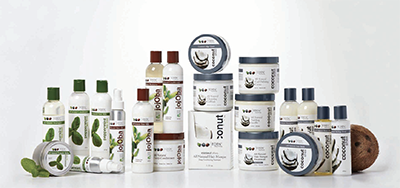
Taliah waahjd
Taliah Waajid started the natural hair care business at the age of 14 and has been making products that have been loved for 25 years. There are four collections of hair products ranging from natural hair care, curly hair care, protective styling and children’s hair care. All products are made with natural ingredients and are chemical free.
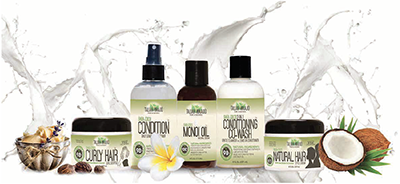
Miss Jessie’s
Founded in 2004 by granddaughters Miko and Titi Branch, after Miss Jessi May Branch’s name and recipe. Jessi Branch was said to have used foods such as eggs and mayonnaise for hair care when her granddaughters complained about curly hair. This brand is known to be used by celebrities such as singer Alicia Keith and former president Obama’s daughters Shasha and Malia. Disposable treatments are popular in beauty supplies because they are not inexpensive.
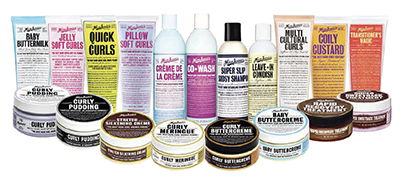
Camille Rose
Many people think of Camille Rose as a company that only deals with hair products, but it is actually a brand that started with skin care. Founder Janell Stephens researched and developed a solution to chronic eczema in her five children, and in 2011, the development of a diaper rash cream and a nursing cream made from natural ingredients gained an explosive response from consumers. It even launched a signature hair collection.
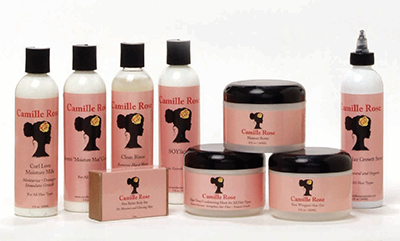
Kaleidoscope Hair Products
It is the company that created the “blue bottle,” a hair growth product that was sold as fast as wildfire last year. Jesseca Dupart founded Kaleidoscope Hair Products in 2014 after her hair salon burned down in 2013. It seemed like a tough job when she, a single mother, started a business. However, she said she wasn’t afraid of having 0 dollars in her account because she already faced hardships like that before. Kaleidoscope Hair Products increased its sales by 33% during the pandemic, with sales of more than $20 million to date.
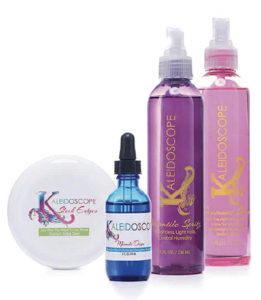
THE Hair Diagram
It is a company more known as BOLD HOLD, a wig adhesive than the company name THE Hair Diagram. Founder Tamika Gibson has been working as a hairstylist for more than 20 years, teaching students the beauty techniques of making wigs. She realized how many harmful ingredients the adhesives on the market have and created her own adhesive that is safe and natural. The company makes adhesives, lace removers and skin protectors, and is gaining popularity with consumers who want to wear lace front wigs naturally and safely.
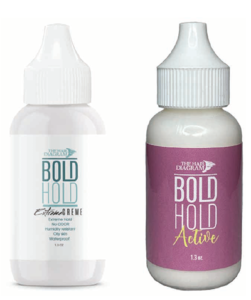
Hair Trend BY Kyounghyun Han
BNB Magazine Jan. 2021 ©bnbmag.com